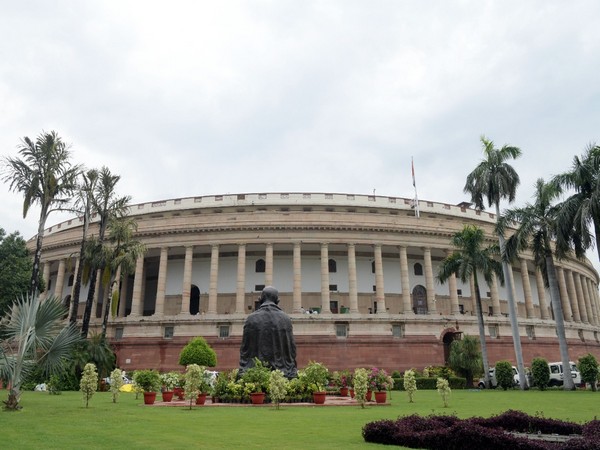Adjudication mechanism proposed in Jan Vishwas Bill to help reduce burden on judiciary: Par panel
Introduction of measures like adjudication mechanism, to deal with minor offences, in the Jan Vishwas Bill would go a long way in reducing the burden on the judiciary, and unclog courts, a parliamentary panel report has said.Jan Vishwas amendment of provisions Bill 2022, introduced in the Lok Sabha on December 22, seeks to decriminalise minor offences by amending 183 provisions in 42 Acts.

- Country:
- India
Introduction of measures like adjudication mechanism, to deal with minor offences, in the Jan Vishwas Bill would go a long way in reducing the burden on the judiciary, and unclog courts, a parliamentary panel report has said.
Jan Vishwas (amendment of provisions) Bill 2022, introduced in the Lok Sabha on December 22, seeks to decriminalise minor offences by amending 183 provisions in 42 Acts. It was referred to a 31-member joint committee of parliament for scrutiny.
The report was tabled on March 20.
It said that pursuing the spirit of 'Minimum Government Maximum Governance, India needs to get rid of the vintage laws that were adversely affecting the development of the country.
The bill has endeavoured to identify a large number of offences of minor nature and decriminalize them with monetary penalties, it added.
The clauses of criminality for small procedural lapses and minor defaults clog the judiciary and may put adjudication of major offences on the back burner, the report said. ''Some of the proposed amendments are introducing suitable adjudication mechanisms, wherever applicable and feasible for dealing with minor offences. This would go a long way in reducing the burden on the judiciary, unclog courts and help in efficient justice dispensation,'' it said.
The bill has emphasised more on imposing penalties instead of fines and has significantly expanded the number of decriminalisation of minor offences a move which would help in promoting ease of doing business and living both.
''Decriminalising of minor offences will certainly reduce the burden on judiciary and prisons while easing the doing of business and easing the living of the individuals at the same time,'' it added. It also said that the proposed amendments would accelerate investment decisions due to smoother processes and attracting more investment.
''The Bill seeks to reduce compliance burden to give impetus to business process reengineering and improve ease of living of people,'' it said adding the large number of reforms expected to be brought by the Bill will impact all kinds of business enterprises ranging from small and medium enterprises to mega corporations, investors to start-ups, workers to entrepreneurs.
Overall the bill aims to provide and expand business opportunities with a swift and effective resolution of various minor disputes while also ensuring that the government is able to collect penalties, it added. Besides the decriminalisation of minor offences, the bill envisages the rationalisation of monetary penalties, depending on the gravity of the offence, bolstering trust-based governance.
The Acts which are being amended include The Drugs and Cosmetics Act, 1940; Public Debt Act, 1944; Pharmacy Act, 1948; Cinematograph Act, 1952; Copyright Act, 1957; Patents Act, 1970; Environment (Protection) Act, 1986; and Motor Vehicles Act, 1988.
The committee was chaired by BJP member P P Chaudhary from the Lok Sabha. The other members include Sanjay Jaiswal, Rajendra Agrawal, Poonam Pramod Mahajan, Gaurav Gogoi, A Raja and Sougata Ray.
(This story has not been edited by Devdiscourse staff and is auto-generated from a syndicated feed.)










